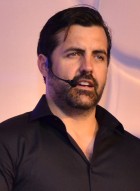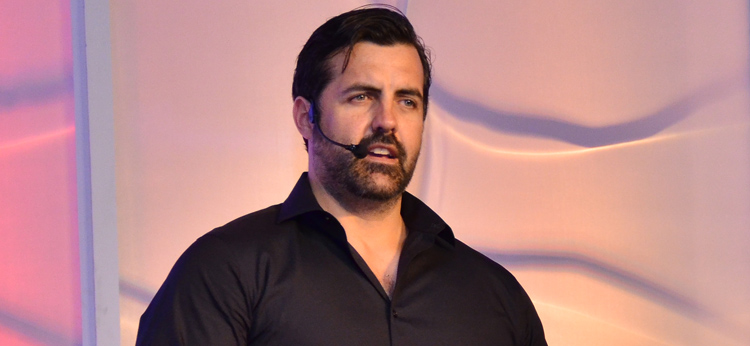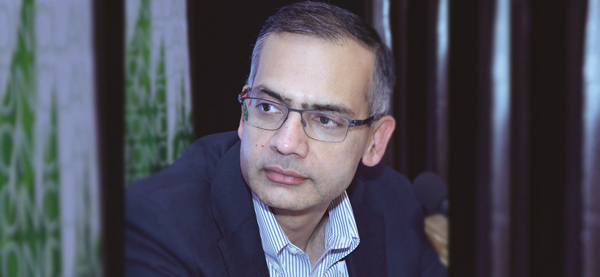Prima facie, associating travel business and products with world’s most popular and powerful social site Facebook may not seem to be right synchronisation. The site which gets more than a billion visitors everyday (one out of the seven inhabitants on the planet) is the larger expansive generic platform much known for its agnostic stance to all kinds of expression. But at the recently held PhocusWright inaugural conference in India, when Lee McCabe (Head- Travel, Facebook) took the stage, he presented a broader perspective on the changing tides in the global technology space (vis-à-vis growing internet penetration and the phenomenal rise of the smartphone devices) emphasising on the possible usage of the leading social sites by the travel companies.
 Travel, no doubt, is something very personal in nature for every one but its digital expression possibilities are infinite. And that brings a powerful social site like Facebook in the center of the critical churnings happening around. At one end of the spectrum is the huge travelling class who till recently were used to share their experience through texts and then graduated to pictures which is being further up-scaled to videos now. And a posting narrating a personal travel experience is acting as a powerful review for many even as a site like Facebook is not exactly a TripAdvisor. A bad experience shared on a Facebook could, therefore, be bad news for the products which are the receiving end of the ire. And in an age where mobile devices have become the most powerful tool, the sentiments of all kinds are flashing instantly. “ This is the fourth spell of revolution which has happened in the recent history of humanity. It had begun with mechanised production around 1700 and about a century later it had turned into mass production. Since 1970’s, we have witnessed a revolution in the automated products category and now this digital revolution. Every business sector like banking, automobile, etc. is aligning with it and so are the other spheres,” explained McCabe, Facebook’s first travel head (he was appointed in 2012 and prior to that he was associated with Expedia) in his opening remark.
Travel, no doubt, is something very personal in nature for every one but its digital expression possibilities are infinite. And that brings a powerful social site like Facebook in the center of the critical churnings happening around. At one end of the spectrum is the huge travelling class who till recently were used to share their experience through texts and then graduated to pictures which is being further up-scaled to videos now. And a posting narrating a personal travel experience is acting as a powerful review for many even as a site like Facebook is not exactly a TripAdvisor. A bad experience shared on a Facebook could, therefore, be bad news for the products which are the receiving end of the ire. And in an age where mobile devices have become the most powerful tool, the sentiments of all kinds are flashing instantly. “ This is the fourth spell of revolution which has happened in the recent history of humanity. It had begun with mechanised production around 1700 and about a century later it had turned into mass production. Since 1970’s, we have witnessed a revolution in the automated products category and now this digital revolution. Every business sector like banking, automobile, etc. is aligning with it and so are the other spheres,” explained McCabe, Facebook’s first travel head (he was appointed in 2012 and prior to that he was associated with Expedia) in his opening remark.
As a connecting medium in this rapidly growing digital world, desktops have become a thing of the past and laptops too are increasingly losing their relevance. And ‘mobile first’ is the most prized mantra of all digital flagbearers in all businesses including travel. As per Facebook estimates, there are about 2.5 active smartphone users across the globe and 40 percent of them are using 3g plus devices. “ From the standpoint of Facebook’s own growth, mobile has been a critical catalysts,” added McCabe. Facebook today has a daily traffic of about 1.4 billion and its affiliate whatsapp has about 1 billion users. Every day about 30 billion messages are exchanged between whatsapp users which is 50 percent more than global sms volume.
“ Media consumption is stacking and not shifting,” said McCabe while highlighting how digital platforms have begun dominating the general life which in turn is also having a bearing on business modalities connecting consumers with the service providers. For instance, television viewing in the world’s largest market the US is consistently declining since 2011 while the smartphone is increasingly becoming the most preferred tool. The emergence of more immersive mobile apps is further contributing to their popularity which is also a function of their ability to connect with large volume of consumers instantly. Here is an interesting statistic which is reflective of this trend. It had taken radio 38 years to reach to 50 million consumers. In the case of television, the period was shortened to 13 years. Internet, during the early stage of its evolution, had taken four years to reach to this mark while Facebook itself had taken 3.5 years to build 50 million base. The period was further truncated for IPod to three years. But a gaming app like Temple Run 2 was downloaded by 50 million consumers in just 13 days. “ The average number of apps used by smartphone users in the US market is 26.7 and they are spending nearly 37 hours with them every month. So you can understand their importance,” pointed out McCabe.
The changing tides in the technology space and their increasing acceptance by the consumer class has also plenty of import for the travel business. “ We have reached in a new era. In 2015, of the total marketing spend of travel companies which stood at $44 billion, $8.2 billion went to the digital medium. The increasing use of apps has created an eco-system which is making equations extremely challenging for the service providers like hotel units. Your guests may come to you for accommodation but they may not use your ancillary services since they have options to get those services from outside,” McCabe underlined.
Pressing on the imperative of embracing digital rules of the new era, Facebook travel head advocated three mantras to survive in this challenging environment. “Connection, convenience and context should be the basic pillars of your digital strategy. Your consumers now want to connect quickly since it makes their life easier. You have to ensure that all his requirements are met conveniently and you should spare no effort in delivering him a personalised experience. These are the key rules of the game now,” emphasised McCabe.




































